
The People and Place research cluster focuses on understanding the relationship between people and their environments, with 'place' being defined as broad as region and as small as a room.
About us
The PeopleÌı&ÌıPlace research cluster consists of researchers focused on understanding the relationship between people and their environments. It is a cross-disciplinary group including researchers from a number of different programs with interests and expertise in the fields of Urban Design, Architecture, Landscape Architecture, Industrial Design, Geography, Environment-behaviour Studies and Urban Planning. People-place studies have become a major focus of interdisciplinary and applied research. At the core of this interest is the desire to understand the complexities of people-place relationships and to improve the quality of them. Specifically, members of this cluster conduct research on aspects of the relationship between people and their environments which have the potential to benefit the communities and professions with whom we work.
Research outputs from this group have the capacity to:
- contribute to the major Built Environment research priority theme, the Design, Development and Management of the 21st Century City
- support the work of City Future Research Centre
- increase and build research activity and capacity in the areas of urban design practice, planning and planning policy
-
Symposiums
Date: 15 November, 2019
Date: 7 November, 2019
Off the Rael'sPeople & Place cluster members books on display & for saleSeminar and Book Launch
Urban Density, Placemaking & Health
Seminars, Conferences & Workshops
People and Place Cluster Seminar
Sara presented about the scope and the implications of a project site visit to the Walgett community. This project is led by the Indigenous elders and provides trans-disciplinary and cross-faculty collaboration opportunities.
Date: 11 July, 2019
Speaker: Sara Padgett Kjaersgaard
People who live in urban environments are at higher risk of a range of mental illnesses. However it would be reductive to equate cities with poor mental health, as living in urban environments can be beneficial, for example through increased opportunities for employment and socialization.Ìı
Date: 15 January, 2019
Keynote Speaker: Andrea Mechelli, Michael Smythe
Measuring Community in an Urban Age: Findings from the LSE seed funded study
The review found definitions from a variety of perspectives including people based ties, known others in social networks, familiar strangers from everyday life, institutional and avocational ties, or relationships bounded by place, neighbourhoods, third places or activity spaces. This presentation will give a brief overview of the findings from the soon to be published report.
Date: 7 January, 2019
Keynote Speaker: Meg Bartholomew
Ìı
-
Seminars, Conferences & Workshops
An informal roundtable discussion hosted by UNSW Arts, Design & Architecture where distinguished scholar and Emeritus Professor, Marion Roberts discussed her pioneering work on gendered cities and its contemporary relevance. She engaged with participants in discussing different research questions and explored possible synergies with UNSW colleagues from Built Environment and associated disciplines.Ìı
Keynote speaker: Emeritus Professor Marion Roberts (University of Westminster, UK).
People and Place Cluster SSP/ Paris Studio/ The Conversation
Christine Steinmetz talks about her Study leave which took her to Tel Aviv, meeting Hila Orin, a leading Smart City advocate and Tel Aviv Foundation CEO, and becoming the Research Liaison representative for Australia and Asia Pacific Rim for the Tel Aviv Foundation. She connects her work with Smart Cities, the Digi Tel Card and the Tel Aviv Foundation with the current Smart Social Spaces research project with the Georges River Council, Street Furniture Australia and UNSWâs Faculty of the Built Environment.Ìı The overarching theme that âstitches' her work together fits âDenzin and Lincolnâs (2005) analogy of a bricoleur or quilter, to the contemporary qualitative researcher, which resonated strongly with me.â
Date: Tuesday 11 September, 2018
Keynote Speaker: Dr Christine Steinmetz
People and Place Research Cluster Talk 2018
Max Whitby talks about Design for Neurodiversity, investigating barriers and spatial needs in the use of public buildings for users with lived experiences of a range of disorders and the resulting impact. She explores methods such as Composite Mapping for Evaluation of Usability of Targeted Affordances in order to design better for universal access and assertive technology. Sydney Opera house is a case study that is explored in detail.
Date: Tuesday 28th August, 2018
Keynote Speaker: Maximilienne Whitby
P&P Cluster Talk
Dr Marshall will speak about the Smart Social Spaces project with Georges River Council and Street Furniture Australia. This $ 657,000 research project is funded by the Federal Department of Industry, Business and Innovation.
Date: 14 August, 2018
Keynote Speaker: Dr Marshall
Digital Placemaking - using mapping tools to support communities in Detroit
The seminar was an analysis of geographic indicators and their relevance in understanding the cities neighbourhoods, their residents, their problems and opportunities for improvement. How digital start ups are bring life back to the inner city.Ìı
Date: Wednesday 6th June, 2018
Keynote Speaker: Dr Laura Cromlin (City Futures Research Centre)
The Value and Use of Urban Health Indicator Tools in Urban Planning Policy and Decision-Making
The seminar presented the results of current research on urban health indicator (UHI) tools. The study investigated how UHI tools might function within the complex planning policy and decision-making process to promote health. The use and value of UHI tools is examined through a mixed-methods study design using communicative planning and complexity theories. Helen Pineo discussed the results of a systematic review.
Date: Friday 4 May, 2018
Keynote Speaker: Helen Pineo, Researcher (University College London)
In becoming a smarter city: Pragmatism experiments in Sydney's transport information systems
Tim Tompson thesis studies the sociology of the Smart City through pragmatist approaches. As a practising designer, Tim works with strategic innovation platform Chôra and has previously worked with Second Road, Deloitte, and as an independent consultant developing participatory approaches to strategy and innovation. Tim has held teaching positions at UTS Faculty of Engineering and IT, and UNSW Industrial Design.
Date: Thursday 22nd March, 2018
Keynote Speaker: Tim Tompson
-
Seminars, Conferences & Workshops
Governance and the Dynamics of Gray Commercial Districts, Chicago 1920-2010: Towards Shaping Healthy Cities
This presentation traces shifting gay commercial spaces in Chicago between 1920 and 2010, identifies some of the elements of the planning and governance at work in each period, and reflects on the need for dynamic spatial understanding to improve the effectiveness of planning and addressing the issues of Lesbian, Gay, Bisexual, Transgender and Queer (LGBTQ) people.
Date: Tuesday 3rd October, 2017
Keynote Speaker: Associate Professor Curt Winkle (University of Illinois, Chicago)
-
Writing workshop
A writing Workshop for Papers, Books & Grants - from strategy to words, phrases and publication.
This People & Place Research Cluster workshop presented publishing industry professionals, BE staff and faculty academics who have successful writing careers. Together they shared their stories and talked about their experiences writing research papers, editingÌıbooks, authoringÌıbooks and successful grant applications.
In the context of the faculty research strategy theyÌıexplored how to get from high level strategic thinking down to the actual practicalities of writing an article or a chapter for a book. TheyÌıalso focused on how to getÌıresearch noticed via different forums such as The Conversation. Experienced writers contributed with hints andÌıtips about what to do and which common pitfalls to avoid; how to get your message out and how best to tailor your writing to your intended audience.
Keynote speakers included:ÌıJohn Watson (The Conversation), Professor Maartin Loosemore, Drs Judith O'Callaghan, John Blair, Kate Bishop, Nancy Marshall and Toni Hodge.
15th November 2016:Ìı,ÌıÌıandÌı
Book Launch
An event that focused on celebrating multiple releases by Cluster members.
11th May 2016:Ìı
Seminars & Conferences
The seminar focused on what impactÌıhigh density development have onÌıresidents and communities.ÌıMuch of Hazel Easthope'sÌıresearch focuses on the development, management, governance and planning implications of private apartment buildingsÌı and estates and the lived experiences of their residents.Ìı
Date:ÌıMonday 9th May, 2016
Keynote Speaker:ÌıAssociate Professor (UNSW) and UNSW Scientia Fellow at the City Futures Research CentreÌıHazel EasthopeThe cluster runs research seminars â including a series of informal lunchtime seminars â on research topics of interest. A collection of videos from our seminars are below.
Future trainingÌıactivities are likely to include professional development, short courses for local and international policy makers and professionals in urban policy, planning, design, development and governance. The cluster encourages collaboration with government and industry partners in such ventures.
Symposiums
17th September 2016ÌıSymposium -ÌıResilience for People and Place: Research, Policy and Practice Synergies
A Symposium for members of the UNSW FBE People and Places Research Cluster, other academics, state and local government, NGOs and industry representatives.
The overarching aim of the seminar wasÌıto explore how researchers can better meet the needs of policy-makers and practitioners in delivering evidence, to create and support resilient people and places in the twenty-first century. More specifically, the objectives of the symposium were to:
- determine a multi-disciplinary definition of resilience, relevant to people and place, now and into the future
- produce a âlong-listâ of key resilience issues and a short-list of potential projects, and
- provide participants with an opportunity to express an interest in particular projects.
Keynote speakers included Chief Resilience Officer Beck Dawson (Metropolitan, Sydney), Professor David Sanderson (University of New South Wales).
Please find the link to the report and presentations below.
4th September 2016Ìı- Liveable Density workshop
The workshop explored human-centred apartment design and community resilience in high density neighbourhoods. Led by P&P Cluster member and newly minted Associate Professor Hazel Easthope, workshop participants heard from Canadian researchers and consultants Paty Rios and Stacy Barter.Ìı
They shared insights from their projects: Happy Homes: A toolkit for building sociability through multi-family housing design and the Building Resilient Neigbourhoods program and Resilient Streets Toolkit. The workshop culminated in an action oriented discussion on practical directions for achieving social sustainability through urban design, social research, planning policy, community development and capacity building, community facilities and services and urban management.
Keynote speakers included: Associate Professor Hazel Easthope, Paty Rios, Stacy Barter and Susan Thompson.
-
Symposiums
2015 Symposium â Delivering for Diversity in the 21st Century City
On 25th June, 2015, the People & Place Research cluster hosted the third in a series of symposia on the people-place challenges associated with designing and delivering the 21st century city. In 2013 the symposium focused on âWho is Making place?â and in 2014 the focus was on âPlace and Placelessness in the 21st Century Cityâ. This year the focus was on recognising another major challenge for urban planning and design: that of delivering for diversity.
Australian cities are home to 90 per cent of the Australian population. This places inevitable pressure on city-makers to recognise the complexity of urban populations and their diversity. It also places enormous pressure on the environments of cities and their capacity to offer a range of nourishing, functional, vibrant environments that support the social and cultural life of our cities. The Delivering for Diversity in the 21st Century City symposium provided the platform for varied discussions on the subject of diversity spanning topics such as:
- the challenges of meeting the needs of social and cultural diversity
- traditions and their relationship to national identity
- the design and planning challenges at both the city and the local scale
- the arts, cultural heritage and sense of place
- the role of community-led initiatives in city life
Keynote speakers included Professor Nezar AlSayyad (University of California, Berkeley), Professor Ruth Fincher (University of Melbourne), Marla Guppy (Guppy & Associates) and Hugo Moline (MAPA).Ìı
The presentations were recorded by UNSWTV along with a collection of Vox Pops conducted with members of the audience throughout the day.Ìı
Watch the 2015 Seminars online:
-
Symposiums
2014ÌıSymposium - Place and Placelessness in the 21st Century City
On the 4th September, 2014, the People & Place Research cluster joined with the Associate Dean, Research, Professor Robert Freestone and the Deputy Dean of the Faculty, Professor Alan Peters to host a symposium on Place and Placelessness in the 21st Century City.
Place studies have become a major focus of interdisciplinary and applied research, proliferating in a variety of directions including place identity, place attachment, and place making. At the core of much of this interest is concern with unpacking the nature of, as well as enhancing the quality and potentialities of, people-place relations. The âPeople and Placeâ research cluster has been exploring this area from varied perspectives including landscape architecture, architecture, geography and planning.
This symposium was focused on âplacelessnessâ. The intention was to critically revisit a concept indelibly linked with Canadian geographer Ted Relph and enunciated in his classic book Place and Placelessness published over four decades ago and still frequently invoked in contemporary place studies today. We were fortunate to have Professor Relph as a keynote speaker opening the day. He was followed by a number of keynote speakers including A/Prof Linda Corkery, Prof Jon Lang, Prof Kim Dovey (Melbourne University) and Prof John Tomaney (UCL Bartlett). A collection of shorter papers was also presented by members of the academic staff and students from the Cluster.
The presentations were recorded by UNSWTV along with a collection of Vox Pops conducted with members of the audience throughout the day. Watch recordings of the 2014 conference presentations.
Watch the 2014 Seminars online:
-
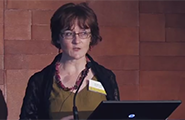
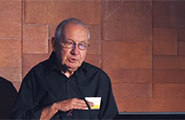
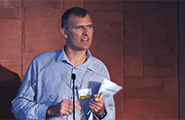
Keynote 2 Response Gareth Collins RMS toÌı'Self-conscious & un-self conscious place making: issues at the city scale'
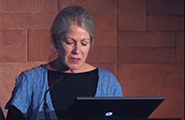
Keynote 3 Kate Shaw - 'Using or exchanging Places?'
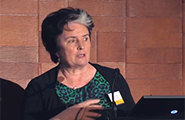
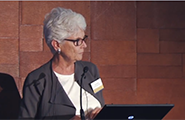
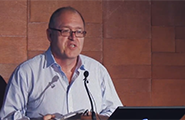
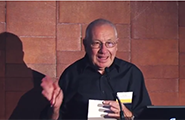
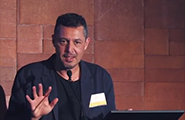
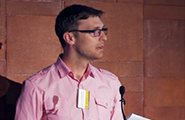
Reflection 3 Ryan van den NouwelantÌı
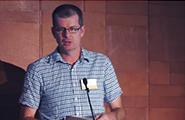
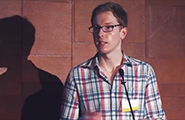
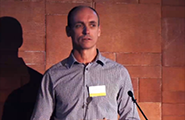
Reflection 6 Michael Sheridan
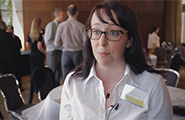
-
- ARC Discovery 2018-2015: Designing Global Sydney: The negotiation of public and private interests and Rob Freestone is the lead investigator.
- ARC Future Fellowship 2017-2014: City Living: Urban consolidation and the social sustainability of citiesÌı
- ARC Discovery 2016-2014: Planning in a Market Economy: the case of the compact cityÌı
- ARC Linkage 2015-2013: Renewing the Compact City: Economically viable and socially sustainable approaches to urban redevelopment in a complex multi-stakeholder environment. With partners: UrbanGrowth NSW, Strata Community Australia (SCA), Australian College of Community Association Lawyers, Macquarie Bank, The Owners Corporation Network of Australia, NSW Fair Trading.Ìı
- ARC Discovery Project 2015-2012: Living togetherÌı
- ARC Linkage 2014-2011:Planning and Building Healthy Communities: A Multidisciplinary Study of the Relationship Between the Built Environment and Health. Partners are the Australian Heart Foundation; Urban Growth NSW; Sydney West Local Health District.
- Australian Housing and Urban Research Institute (AHURI) 2014-2011: Addressing Spatial Concentrations of Social DisadvantageÌı
- AHURI 2014-2013: Understanding decision making in third sector housing organisationÌı
- AHURI 2014-2013: Cost effectiveness and tenant outcomes in social housingÌı
- City of Sydney 2014: Green Square Community Survey (Commissioned research)
- A CRC project: Evidence-based Low Carbon Design for Non-residential Buildings. Partners involved: HASSELL, AECOM, Brookfield Multiplex.
- Bonnyrigg longitudinal studyÌı(Commissioned research)
- Riverwood longitudinal study (Commissioned research)
Staff
Contact Us
For more information about the cluster, please email Co-Convenors:
Susan Thompson,ÌıProfessor of City Planning
Telephone: +61 2 9385 4395
Email:Ìıs.thompson@unsw.edu.au
Christian Tietz, Senior Lecturer Industrial Design
Telephone: +61 414533316
Email:Ìıchristian.tietz@unsw.edu.au
